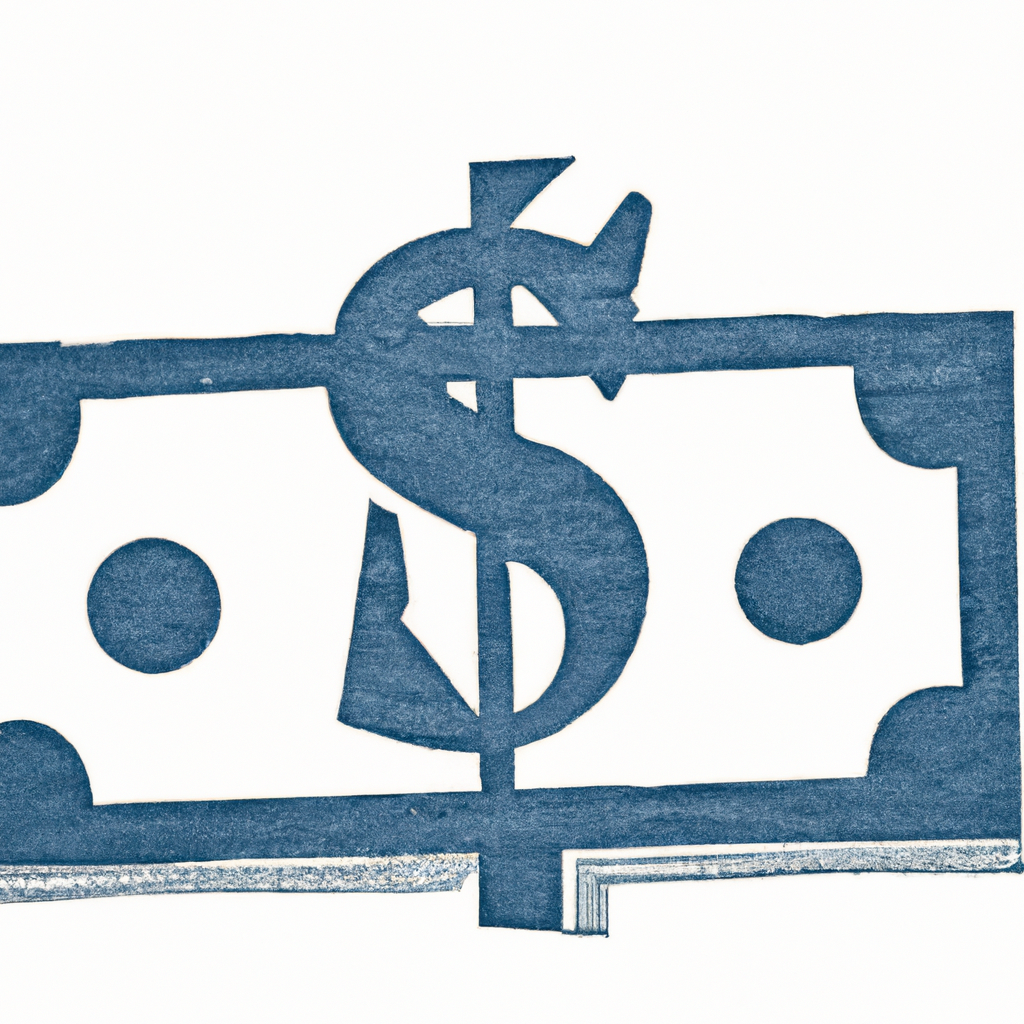Hey there! Ever wondered about the connection between debt and living a frugal lifestyle? Well, wonder no more! In this article, we’ll be exploring the fascinating link between these two seemingly unrelated concepts. You may be surprised to discover how adopting a frugal mindset can not only save you money but also help you break free from the clutches of debt. So, grab a cup of tea, sit back, and get ready to explore this intriguing relationship!

The Impact of Debt on Frugal Living
Increased financial stress
Debt can cause a significant amount of financial stress in your life. It can weigh heavily on your mind, constantly reminding you of the financial burden you carry. The constant worry about making payments and meeting your financial obligations can take a toll on your mental well-being, causing anxiety and sleepless nights. Frugal living can help alleviate some of this stress by allowing you to reduce your expenses and live within your means. By adopting a frugal lifestyle, you can take control of your finances and work towards becoming debt-free.
Limited savings and investments
One of the major setbacks of being in debt is the limited ability to save money or invest for the future. Debt payments can eat into your income, leaving you with little to no financial flexibility. This can prevent you from saving for emergencies, retirement, or other financial goals you may have. Embracing frugal living can help you save more money by cutting back on unnecessary expenses and finding ways to live more economically. This, in turn, can free up funds to save and invest for your future, ensuring long-term financial security.
Reduced ability to live within means
Living beyond your means is a common trap that can lead to debt. It’s easy to get caught up in the desire for instant gratification and spend money on things you can’t afford. However, this lifestyle is unsustainable and can quickly lead to financial hardship. Frugal living encourages you to live within your means and prioritize your spending. By adopting a frugal mindset, you can avoid accumulating excessive debt and ensure that you are making wise financial choices that align with your financial resources.
The Role of Frugal Living in Managing Debt
Developing a budget and sticking to it
One of the fundamental principles of frugal living is creating a budget and sticking to it. A budget helps you monitor your income and expenses, giving you a clear picture of your financial situation. By allocating specific amounts to different categories, such as housing, food, transportation, and debt payments, you can better manage your finances. A budget provides a roadmap for your spending and helps you make informed decisions about how to allocate your resources effectively.
Cutting back on unnecessary expenses
Frugal living emphasizes the importance of distinguishing between essential and non-essential expenses. It encourages you to examine your spending habits and identify areas where you can cut back. By eliminating or reducing non-essential expenses such as eating out, luxury items, or expensive entertainment, you can free up funds to put towards paying off your debt. Frugal living teaches you to prioritize your needs over wants, allowing you to make conscious decisions that align with your financial goals.
Finding ways to increase income
Increasing your income can be another effective strategy for managing debt while embracing frugal living. Frugal living doesn’t necessarily mean living a life of deprivation; it’s about being smart with your resources. Look for opportunities to boost your income, whether it’s through a side hustle, freelance work, or pursuing career advancement. By earning more money, you can accelerate your debt repayment process and achieve financial freedom more quickly. Frugal living and increasing your income go hand in hand in helping you manage and overcome debt.
Debt Reduction Strategies for Frugal Living
Snowball method
The snowball method is a popular debt reduction strategy often recommended for individuals with multiple debts. This method involves paying off the smallest debt first while making minimum payments on all other debts. Once the smallest debt is paid off, the money previously allocated towards that debt is then redirected towards the next smallest debt. This process continues until all debts are paid off. The snowball method provides a sense of accomplishment as you see debts being paid off one by one, motivating you to continue your debt repayment journey.
Debt consolidation
Debt consolidation involves combining multiple high-interest debts into a single loan with a lower interest rate. This can make it easier to manage your debts and potentially reduce your monthly payments. By consolidating your debts, you may also benefit from a lower overall interest rate, which can save you money in the long run. Frugal living can complement debt consolidation by ensuring that you don’t fall back into the cycle of accumulating more debt once you’ve consolidated your existing debts.
Credit counseling
Credit counseling can be a valuable resource for individuals struggling with debt. Credit counselors are trained professionals who can provide guidance and support in managing your debt. They can help you create a personalized debt management plan, negotiate with creditors, and provide financial education. Frugal living aligns perfectly with credit counseling as it encourages you to adopt responsible financial habits and make sustainable changes to your lifestyle. By incorporating the advice and guidance from credit counseling into your frugal living journey, you can take control of your debt and work towards a debt-free future.
The Psychology of Debt and Frugal Living
Emotional impact of debt
Debt can have a profound emotional impact on individuals. It can lead to feelings of shame, guilt, and stress. Many people experience a loss of control and a sense of being trapped in a cycle of debt. Frugal living can help counteract these negative emotions by empowering you to take control of your finances. By adopting a frugal lifestyle, you regain control over your spending and are actively working towards a debt-free future. This can boost your self-esteem and overall sense of well-being.
Changing mindsets and behaviors
Frugal living requires a shift in mindset and behaviors. It challenges the notion of instant gratification and encourages delayed gratification. By reframing your perspective on spending, you can rewire your brain to prioritize saving and debt repayment over unnecessary purchases. Frugal living teaches you to find fulfillment in experiences and relationships rather than material possessions, leading to a more content and balanced life. This change in mindset is not only beneficial for debt repayment but also for overall personal growth and happiness.
Developing financial discipline
Frugal living requires discipline and self-control. It’s about making intentional choices and staying committed to your financial goals. By practicing frugality, you develop financial discipline that extends beyond debt repayment. This discipline can help you make better financial decisions, save money, and invest for the future. Frugal living cultivates the habit of evaluating every purchase and considering the long-term consequences. It strengthens your financial muscles and equips you with the tools needed for a financially secure future.

Frugal Living Tips to Avoid Debt
Creating an emergency fund
Building an emergency fund is an essential aspect of frugal living and also serves as a preventive measure against debt. An emergency fund is a pool of money set aside specifically for unexpected expenses, such as medical bills, car repairs, or job loss. By having an emergency fund, you are less likely to rely on credit and accumulate debt when faced with unexpected financial challenges. Frugal living emphasizes the importance of saving for the future and preparing for unforeseen circumstances.
Paying with cash instead of credit
Using cash instead of credit cards can be a powerful tool in avoiding debt. When you pay with cash, you have a physical representation of your spending and are more aware of the money leaving your hands. This can help curb impulse purchases and keep your spending in check. With credit cards, it’s easy to overspend and lose track of your expenses, leading to debt accumulation. Frugal living encourages mindful spending and paying with cash as a way to stay accountable to your budget and financial goals.
Shopping smart and avoiding impulse purchases
Frugal living is all about making conscious choices when it comes to spending. It encourages you to evaluate your needs versus wants and prioritize value for money. Before making a purchase, take the time to research prices, compare options, and consider whether the item is truly necessary. Avoiding impulse purchases can prevent you from accumulating unnecessary debt and help you stay on track with your financial goals. Frugal living promotes mindful consumption and ensures that your hard-earned money is spent wisely.
The Benefits of Frugal Living in the Long Run
Improved financial freedom
Frugal living ultimately leads to improved financial freedom. By managing your debt and living a more frugal lifestyle, you gain control over your finances. You become less reliant on credit and more self-sufficient in meeting your financial needs. Frugal living allows you to make intentional choices about how and where you spend your money, leading to a sense of empowerment and financial security. The ability to live within your means and prioritize your financial goals brings a newfound freedom and peace of mind.
Increased savings for future goals
One of the significant benefits of frugal living is the increased ability to save for future goals. By adopting a frugal mindset, you can identify areas where you can cut back on expenses and redirect those savings towards your financial aspirations. Whether it’s saving for a down payment on a house, funding your children’s education, or planning for retirement, frugal living provides you with the necessary tools to achieve those goals. By making conscious choices and prioritizing long-term financial security, you can build a strong financial foundation for yourself and your family.
Reduced stress and anxiety
Debt can be a significant source of stress and anxiety in one’s life. It can feel overwhelming and burdensome, affecting your overall well-being. Frugal living can help reduce these negative emotions by providing a clear roadmap for debt repayment and financial management. By adopting a frugal lifestyle, you regain control over your finances and actively work towards becoming debt-free. This sense of control and progress can alleviate stress and anxiety, allowing you to focus on other aspects of your life with peace of mind.
Cultivating Frugal Habits for Debt-Free Living
Tracking expenses and setting goals
One of the foundational habits of frugal living is tracking your expenses and setting financial goals. By meticulously recording every expenditure, you gain valuable insight into your spending patterns and can identify areas where you can cut back. Tracking expenses also helps you stay accountable to your budget and make informed financial decisions. Additionally, setting clear and achievable financial goals can provide you with motivation and direction in your debt repayment journey. Frugal living encourages regular evaluation of your progress and adjustment of your goals to ensure continuous growth.
Embracing minimalism and simplicity
Frugal living often goes hand in hand with embracing minimalism and simplicity. It involves simplifying your life and focusing on what truly matters. By decluttering your living space and letting go of unnecessary possessions, you create a sense of freedom and reduce the desire for materialistic pursuits. Embracing minimalism allows you to prioritize experiences, relationships, and personal growth over material possessions. Frugal living promotes the idea that true happiness does not come from acquiring more things but rather from living a purposeful and fulfilling life.
Finding joy in non-materialistic experiences
Frugal living encourages you to seek joy in non-materialistic experiences and find fulfillment outside of consumerism. Instead of relying on shopping sprees or material possessions to bring happiness, frugal living promotes alternative avenues for finding joy. This may include spending time in nature, pursuing hobbies, engaging in community activities, or nurturing relationships. By shifting your focus away from material possessions, you can develop a stronger sense of contentment and reduce the desire for unnecessary spending. Frugal living allows you to create a more fulfilling and satisfying life that is not solely based on material wealth.
The Role of Education and Awareness in Debt Management
Financial literacy and its impact
Financial literacy plays a crucial role in managing debt effectively. Having a solid understanding of personal finance concepts and strategies empowers you to make informed decisions about your money. It equips you with the knowledge and skills needed to budget effectively, manage debts, and build a strong financial foundation. Frugal living encourages continuous education and self-improvement in the realm of personal finance. By investing in your financial literacy, you can enhance your ability to navigate the complexities of debt management and make sound financial choices.
Resources and tools for debt management
There are various resources and tools available to individuals seeking guidance on debt management. Online platforms, books, podcasts, and financial experts offer valuable insights and practical advice on managing debt and adopting a frugal lifestyle. These resources can provide you with strategies, tips, and case studies to inspire and motivate you on your debt repayment journey. Frugal living encourages you to seek out these resources and tap into the knowledge and experiences of others to enhance your own financial management skills.
Seeking professional advice
In some cases, seeking professional advice may be necessary for effectively managing debt. Financial advisors, credit counselors, and debt management agencies can provide specialized guidance tailored to your specific situation. These professionals can help you create a personalized debt management plan, negotiate with creditors, and explore debt relief options. Frugal living supports the idea of seeking professional advice when needed, as it acknowledges the value of expert knowledge and objective guidance in achieving financial goals.
Case Studies: How Frugal Living Helped Individuals Out of Debt
Personal stories of overcoming debt
There are countless personal stories of individuals who have successfully overcome debt through frugal living. These stories serve as inspiration and provide insights into the strategies and mindset shifts that led to their success. By reading about real-life experiences, you can gain valuable lessons and practical tips for managing your own debt. Personal stories also offer a sense of hope and motivation for those facing debt challenges, reminding them that debt can be overcome with determination and discipline.
Lessons learned from successful debt repayment journeys
Successful debt repayment journeys offer valuable lessons and insights into effective debt management. From budgeting techniques to debt reduction strategies, these journeys highlight the importance of perseverance, discipline, and smart financial choices. By analyzing the experiences of others, you can identify common pitfalls to avoid and adopt proven strategies for debt repayment. Learning from the successes and failures of others can accelerate your own debt repayment journey and increase your chances of achieving financial freedom.
Inspiration for those facing debt challenges
One of the powerful aspects of case studies in frugal living is their ability to inspire and motivate individuals facing debt challenges. Reading about others who have faced similar struggles and come out on the other side can provide a much-needed boost of confidence and determination. Case studies offer a sense of solidarity and remind you that you are not alone in your journey towards debt freedom. They demonstrate that with the right mindset, strategies, and support, overcoming debt is possible for anyone.
The Intersection of Debt, Frugal Living, and Sustainability
Reducing consumerism and its environmental impact
Frugal living aligns closely with the goal of reducing consumerism and its environmental impact. By adopting a frugal lifestyle, you naturally consume less and prioritize sustainable choices. Frugal living encourages buying second-hand, repurposing items, and reducing waste. By reducing your consumption and minimizing your environmental footprint, you contribute to a more sustainable future. Frugal living allows you to live in harmony with the planet while also improving your financial well-being.
Debt as a barrier to sustainable living
Debt can often act as a barrier to sustainable living. When burdened with debt, individuals may find it challenging to invest in eco-friendly products or support sustainable initiatives. Frugal living can help overcome this barrier by providing strategies to manage and reduce debt. By adopting frugal habits, you can free up funds to allocate towards sustainable living choices. Frugal living and sustainability go hand in hand, as both aim to create a more balanced and responsible way of living.
Frugal living for a greener future
Frugal living holds immense potential in shaping a greener future for individuals and the planet as a whole. By embracing simplicity, conscious consumption, and resourcefulness, you can reduce waste and promote sustainable practices. Frugal living encourages you to question societal norms of excessive consumption and prioritize experiences over material possessions. By living frugally, you challenge the status quo and contribute to a more sustainable and environmentally conscious world.
In conclusion, the link between debt and frugal living is undeniable. Debt can have a significant impact on your financial well-being and overall quality of life. Frugal living provides a path towards debt-free living by promoting conscious spending, resourcefulness, and financial discipline. By implementing the strategies and principles of frugal living, you can regain control over your finances, reduce stress, and achieve long-term financial freedom. With the right mindset, education, and support, frugal living can be the key to a brighter, debt-free future.

